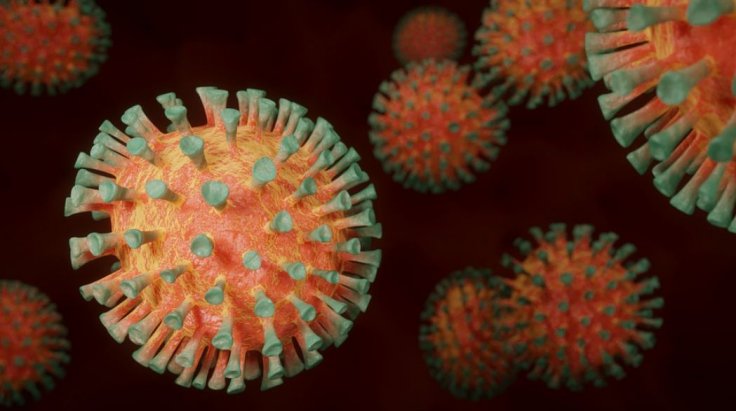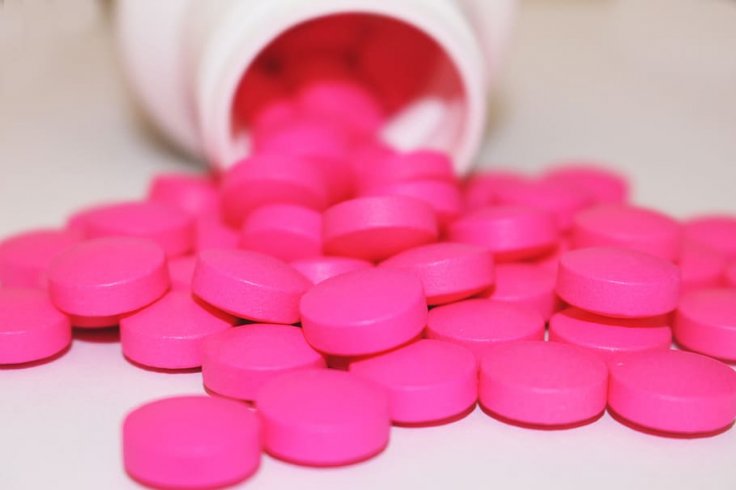Finding the ideal drug to tackle and treat COVID-19 has perhaps been the most challenging scientific pursuits of the 21st century. As the SARS-CoV-2 coronavirus continues its uninhibited march, the need for a 'miracle' drug is intensifying. Providing some hope, a new study has found that an experimental oral antiviral drug, MK-4482/EIDD-2801, also known as Molnupiravir, can suppress the transmission of the virus within 24 hours.
According to researchers from Georgia State University, when Molnupiravir was tested in an animal model, animals that were infected with the SARS-CoV-2 virus and were treated with the drug, could not infect untreated animals that came in contact with them.
"This is the first demonstration of an orally available drug to rapidly block SARS-CoV-2 transmission. MK-4482/EIDD-2801 could be game-changing," said Dr. Richard Plemper, lead author of the study, in a statement.
A Drug Against Multiple Viruses

Molnupiravir is an oral and broad-spectrum antiviral drug. It was originally developed by scientists from Emory University as a treatment against the influenza virus and to suppress its replication. Ridgeback Biotherapeutics, a US-based biotechnology firm, acquired the drug later and has collaborated with Merck & CoIts., an American pharmaceutical company, to advance Molnupiravir's development.
Its efficacy has been tested against several viruses such as MERS-CoV, SARS-CoV, and now, SARS-CoV-2. MK-4482/EIDD-2801 acts by causing errors in the viral RNA during its replication process. Authors of the current study had tested the efficiency of the experimental drug on influenza viruses in guinea pigs and ferrets in older studies. They learnt that it had a lethal effect on these viruses and prevented their spread from infected animals to uninfected ones.
"We noted early on that MK-4482/EIDD-2801 has broad-spectrum activity against respiratory RNA viruses and that treating infected animals by mouth with the drug lowers the amount of shed viral particles by several orders of magnitude, dramatically reducing transmission. These properties made MK-4482/EIDD/2801 a powerful candidate for pharmacologic control of COVID-19," stated Dr. Plemper.
Repurposing An Experimental Drug

For the study, the authors repurposed Molnupiravir against the novel coronavirus in a ferret (Mustela putorius furo) model. Using the model, the team sought to investigate the impeding effect of the drug on the spread of the virus. The team infected six female ferrets (6–10 months old) with the virus nasally through intranasal inoculation.
"We believe ferrets are a relevant transmission model because they readily spread SARS-CoV-2, but mostly do not develop severe disease, which closely resembles SARS-CoV-2 spread in young adults," explained Dr. Robert Cox, a co-lead author of the study.
Using nasal lavages (flushing mucous out of the nasal cavity) and rectal swabs, the viral loads were monitored periodically. The viral load within a subset of organs and respiratory tissues was also observed 4 or 10 days following exposure to the pathogen.
Treating With Molnupiravir

Once the infected or source animals began shedding the virus from their noses, they were broken into two groups of three animals each. One group received a placebo, while the other was treated with MK-4482/EIDD-2801. Next, each of the infected ferrets was lodged with two uninfected ferrets and the animals were observed.
"When we co-housed those infected and then treated source animals with untreated contact ferrets in the same cage, none of the contacts became infected," highlighted Josef Wolf, co-lead author of the study.
However, the ferrets that had been housed with infected animals that received the placebo, contracted the infection. Most importantly, the infectious particles in the samples from the Molnupiravir-treated ferrets became undetectable within 24 hours after treatment.
Advantage of Oral Administration

Unlike other antiviral drugs such as Remdesivir—which are being or were touted as potential treatments for COVID-19—that have to be administered intravenously, Molnupiravir has the advantage of being an oral drug. Therefore, treatment using antiviral medication can commence in the early phases of the infection. This provides a three-fold benefit: preventing the progression of the disease to a severe form, shortening the infectious phase, and swiftly curb localized outbreaks.
Currently, Molnupiravir is in the advanced phase of II/III clinical trials against COVID-19. With luck, if the results from the ferret study translate to human beings, patients who are infected with the novel coronavirus infection can be treated with the drug and can become non-infectious within 24 hours after the commencement of treatment.
.








